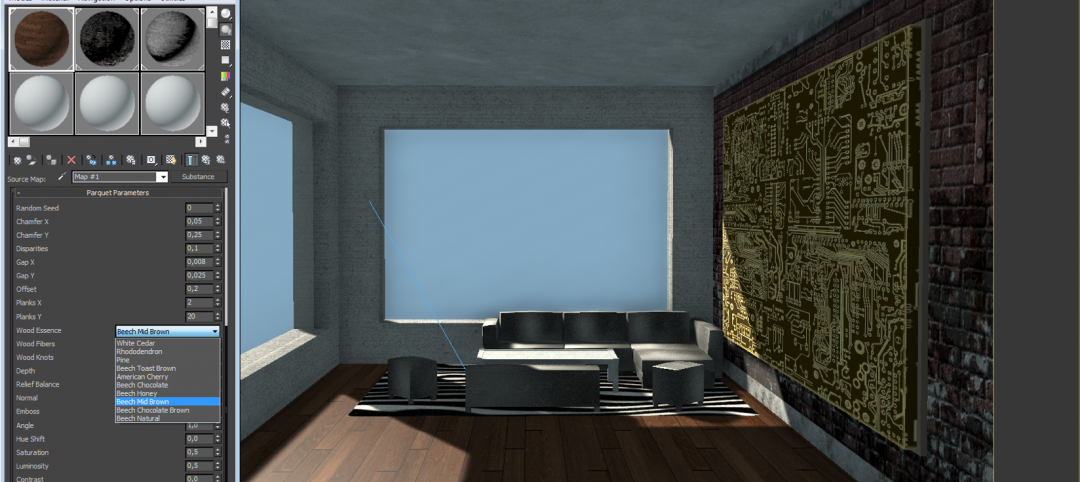Hank Adams, AIA, ACHA, EDAC has been promoted to director of the healthcare program for HDR Architecture. A vice president with the firm, Adams has more than 25 years of healthcare architectural experience and has managed dozens of healthcare projects ranging from complete replacement facilities to multi-phased master plan implementations.
“All of us at HDR are proud of the design creativity, intellectual capital, and hard work that have contributed to building our global design and consulting practice. I am both honored and humbled to be leading the healthcare program; our work is not only a catalyst for change in healthcare delivery, but it impacts the health and well-being of the world,” Adams noted. “As we move forward, my vision for HDR is to be a trusted partner to our healthcare clients. We are helping them successfully navigate through the rapid evolution of modern medicine, economic shifts, and health policy changes toward a sustainable healthcare delivery system that meets the needs of both current and future generations. We’re curious, energized, and prepared to meet this challenge.”
“Hank’s passion for healthcare and his insight into the entire continuum of care made him the natural choice for leading our healthcare program,” said Doug Wignall, AIA, LEED AP, president of HDR Architecture. “His experience provides a unique and comprehensive understanding of the design, management, and technical aspects of complex healthcare projects. He also works diligently to foster an environment that will continue to inspire our skilled and imaginative leaders who are staying one step ahead of the changing paradigm that is 21st-century healthcare.”
Adams has extensive firm leadership experience as a healthcare principal, project manager, healthcare planner, and business developer. As director of HDR’s healthcare program, he provides strategic leadership and overall direction for the program and commits the necessary resources of the firm to successfully complete healthcare projects that embody the firm's clients’ visions and goals. In addition, Adams is an integral member of the design team for the $1.2 billion Parkland replacement hospital project in Dallas, serving as the design manager for the HDR + Corgan Joint Venture Design Team and providing overall leadership and direction to the integrated project delivery team of healthcare design and construction experts.
Adams is based in the firm’s Dallas office. He holds a Bachelor of Architecture degree from Oklahoma State University, and is an active member of the American College of Healthcare Architects (ACHA).
Related Stories
| Dec 13, 2010
Energy efficiency No. 1 priority for commercial office tenants
Green building initiatives are a key influencer when tenants decide to sign a commercial real estate lease, according to a survey by GE Capital Real Estate. The survey, which was conducted over the past year and included more than 2,220 office tenants in the U.S., Canada, France, Germany, Sweden, the UK, Spain, and Japan, shows that energy efficiency remains the No. 1 priority in most countries. Also ranking near the top: waste reduction programs and indoor air.
| Dec 7, 2010
Are green building RFPs more important than contracts?
The Request for Proposal (RFP) process is key to managing a successful LEED project, according to Green Building Law Update. While most people think a contract is the key element to a successful construction project, successfully managing a LEED project requires a clear RFP that addresses many of the problems that can lead to litigation.
| Dec 7, 2010
Blue is the future of green design
Blue design creates places that are not just neutral, but actually add back to the world and is the future of sustainable design and architecture, according to an interview with Paul Eagle, managing director of Perkins+Will, New York; and Janice Barnes, principal at the firm and global discipline leader for planning and strategies.
| Dec 7, 2010
Green building thrives in shaky economy
Green building’s momentum hasn’t been stopped by the economic recession and will keep speeding through the recovery, while at the same time building owners are looking to go green more for economic reasons than environmental ones. Green building has grown 50% in the past two years; total construction starts have shrunk 26% over the same time period, according to “Green Outlook 2011” report. The green-building sector is expected to nearly triple by 2015, representing as much as $145 billion in new construction activity.
| Dec 7, 2010
USGBC: Wood-certification benchmarks fail to pass
The proposed Forest Certification Benchmark to determine when wood-certification groups would have their certification qualify for points in the LEED rating systemdid not pass the USGBC member ballot. As a result, the Certified Wood credit in LEED will remain as it is currently written. To date, only wood certified by the Forest Stewardship Council qualifies for a point in the LEED, while other organizations, such as the Sustainable Forestry Initiative, the Canadian Standards Association, and the American Tree Farm System, are excluded.
| Dec 7, 2010
Prospects for multifamily sector improve greatly
The multifamily sector is showing signs of a real recovery, with nearly 22,000 new apartment units delivered to the market. Net absorption in the third quarter surged by 94,000 units, dropping the national vacancy rate from 7.8% to 7.1%, one of the largest quarterly drops on record, and rents increased for the second quarter in a row.
| Dec 7, 2010
Hot rumor: Norman Foster designing Apple’s new campus
Lord Norman Foster, reportedly has been selected to design Apple’s new campus in Cupertino, Calif. If the news is true, Foster is a good match for Apple say experts. Foster built his celebrity by marrying big gestures to technological wizardry. And, unlike some starchitects, he has glommed onto the environmental revolution—something Apple has made a point of embracing, too.
| Dec 7, 2010
10 megacities of the near future
With Beijing, Shanghai, and Mumbai already on the global radar, where can the next wave of construction be found? Far beyond China, India, and even Brazil it’s predicted. The world’s next future megacities could include Istanbul, Turkey; Ho Chi Minh City, Vietnam; and Khartoum, Sudan, among others. Read about these emerging and little-known behemoths.








